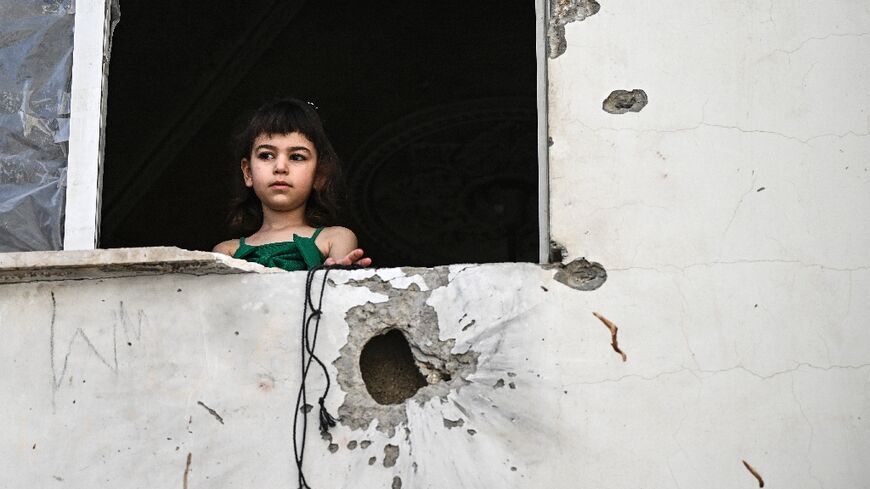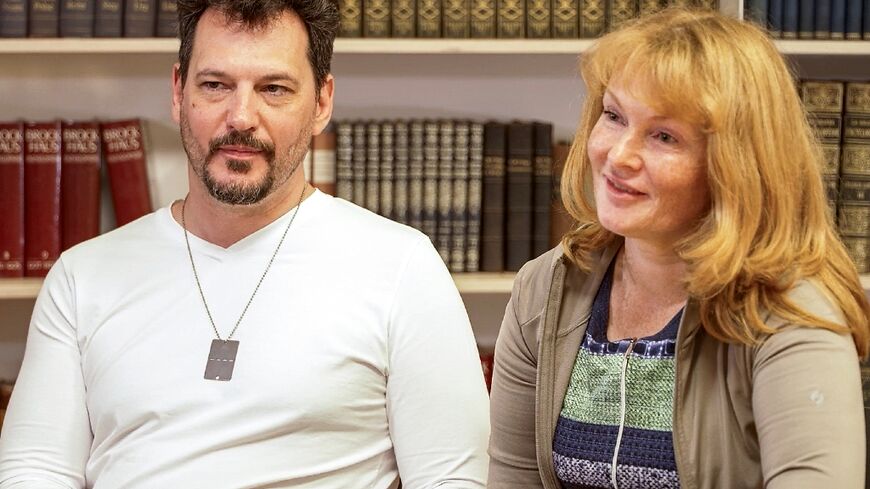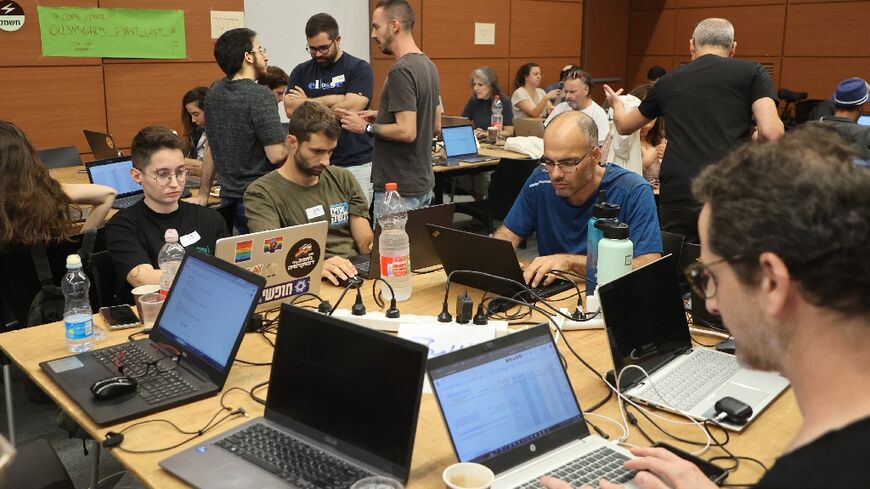Spouses of Israeli reservists feel 'vacuum' of absence

Like other spouses of Israeli army reservists, Sagit Bachner has faced both emotional strain and financial difficulty since her husband was called up to fight the day after October 7.
"Suddenly there was a vacuum, like everything was really on me," said Bachner, 37.
"I had to be the mum, the dad, the caregiver -- everything was basically on my shoulders."
In the months since, Israel has vowed to destroy the militant group Hamas and rescue the hostages while also resettling communities from near the Gaza Strip and helping the evacuees.
"But they paid no attention to us," said Bachner, who has looked after the couple's three sons while putting on hold her business which makes board games.
When the war started, donations poured in to support Israel's male and female reservists, who are considered a pillar of the army, and their families as their household incomes have shrunk.
But after a few weeks, Bachner said, she found herself alone at home with the children in Givat Brenner kibbutz, about 20 kilometres (12 miles) south of Tel Aviv, their anxiety rising and family finances dwindling.
Bachner, originally from Argentina, said their seven-year-old son was angry at first at his father's absence, but later came to take pride in his military service.
A drawing stuck on the fridge shows his father standing at the front of the family with a message scrawled: "Dad is not just taking care of us, but of everyone."
The Gaza war was sparked by Hamas's October 7 attack on southern Israel which resulted in the deaths of 1,194 people, mostly civilians, according to an AFP tally based on Israeli official figures.
Militants also took 251 hostages, 120 of whom remain in Gaza, including 41 the army says are dead.
Israel's bombardment and ground offensive have killed at least 36,654 people in Gaza, also mostly civilians, according to the Hamas-run territory's health ministry.
- 'A band-aid' -
Israeli men who have completed their military service stay in the pool of mandatory reservists until the age of 40, a limit temporarily raised to 41.
In December, Bachner joined a group of wives of reservists created to share information on labour laws and to campaign for greater government support.
Shvut Raanan, who is also a member, said nearly 100,000 relatives of reservists are now struggling to manage a household on their own.
"This is a change that affects everything," said Raanan, 31, a lawyer and mother of four.
"It affects the mental state, it affects the ability to work, it affects the quality of functioning as a mother."
Nearly one third of spouses surveyed by the group said they had suffered professionally since the war began, according to a poll released last Friday.
Among the reservists and spouses surveyed, six percent said they had lost their jobs and 19 percent had to take unpaid leave.
In January, a $2.5-billion package was approved to help the reservists.
"It's like putting on a band-aid," said Bachner. "We need more."
- 'Stay strong' -
In February, the Histadrut trade union and an employers' organisation signed an agreement that extended the protection period for reservists against dismissal.
Late last month, parliament passed a law aimed at preventing the dismissal or deterioration of working conditions for the spouses of reservists during the mobilisation period.
However, the psychological stress remains high for the partners of mobilised reservists whose current number the army did not disclose.
"We need to take care of ourselves, stay strong for ourselves and for our children," said Avital Horev, a communications officer for the reservists' wives forum.
She said her husband had fought in Gaza for an initial 150 days and was recently called up for another tour.
"We also find ourselves needing to take care of our husbands who come back from long months in the battlefield, different, full of trauma from what they have seen, and not yet able to process it," Horev said.
For now the Gaza war shows no sign of ending and there is the risk of another breaking out on Israel's tense northern border with Lebanon.
This is sure to put more strain on reservists and their families, warned Ariel Heimann, a researcher at the Institute for National Security Studies in Tel Aviv.
"The families of the reserve force -- the nuclear family and the broader family -- have a dramatic role in the force's resilience and its ability to continue to serve and fight over time," Heimann had said in January.
"It would be unreasonable to assume that the reservists will be at the disposal of the IDF (army) indefinitely and at full force."





